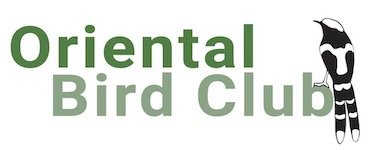Mikado Pheasant © Pete Morris / Birdquest
What we do
Aims of the Oriental Bird Club
to encourage an interest in wild birds of the Oriental region and their conservation
to promote the work of regional bird and nature societies
to collate and publish information on Oriental birds
How OBC helps to conserve Oriental birds
Over 300 Oriental bird species are considered by BirdLife International as threatened by forest destruction, wetland drainage, hunting and trade. Conservation of these species is often hampered by a lack of knowledge. Oriental Bird Club supports conservation work in the Oriental region by encouraging studies of birds and their habitats.
How OBC encourages interest in Oriental birds
OBC has published two Bulletins a year since 1985 and a scientific journal, Forktail, each year since 1986 until it was renamed the Journal of Asian Ornithology in 2021.
BirdingASIA, contains news, recent reports, reviews and feature articles about Oriental birds
Forktail, now the Journal of Asian Ornithology, contains papers on the distribution, conservation, ecology and biology of the region's birds
OBC members receive these publications each year. Meetings are also arranged for members, and the Club provides a selection of sales goods including T-shirts, trip reports and back issues of Club publications
Through the generous support of members and corporate sponsors, the OBC conservation fund has now supported over 250 projects in many oriental countries, primarily run by local people. More than £200,000 has been invested in conservation in the region since 1984. See Conservation for more information including how to apply for a grant.
Where is the Oriental region?
Oriental Bird Club is concerned with the region bounded by:
the Indus river, Pakistan in the west through India and south-east Asia
the eastern boundary of Wallacea (Lydekker's Line)
Mongolia, north-east Russia (E of 90°E) and Japan in the north
the Lesser Sundas and Christmas Island in the south
This vast area embraces tropical and temperate forests, outstanding wetlands, and grasslands providing habitat for over 2,600 bird species, many of them little known.
Governance
OBC is governed by a Constitution. The Club's accounts are filed with the UK Charity Commission. The Club is run by a Council whose members serve in a variety of ways on a voluntary basis. Council Officers have fixed terms and their nomination is ratified by members at an Annual General Meeting.
The Council is helped in its work by a Publications Committee and a Conservation Committee, and by a network of OBC Representatives. All committee members and country representatives serve on a voluntary basis.
The many photographers, artists and writers who contribute their work to Oriental Bird Club publications, including these web pages are especially thanked.
A summary of our most recent accounts can be found on the UK Charity Commission's website.
The Oriental Bird Club's Code of Practice for Birders
The OBC's Code of Practice for Birders (PDF, 50KB) sets out five key principles that all Members should follow wherever they are birdwatching.

